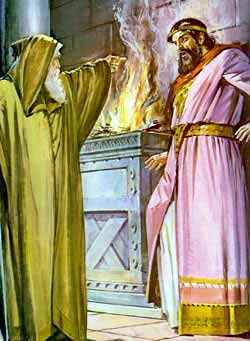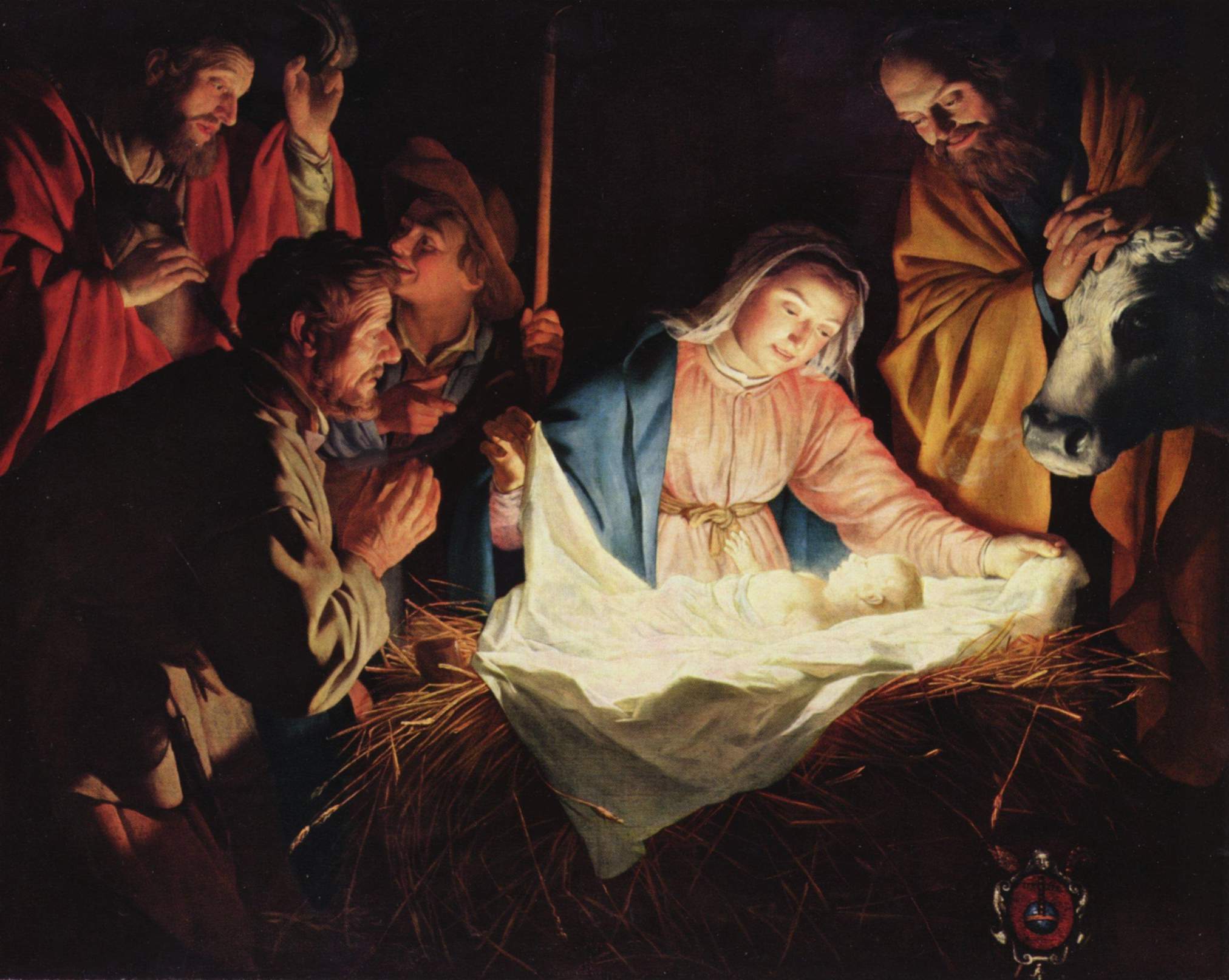What has captured my imagination as I’ve prayed this Advent is how we have been given this wonderful gift. This gift eclipses anything we’ll ever be given, anything we will ever earn, anything that will ever cross our meandering path in life. Today, the readings call that gift Emmanuel – God with us. I think sometimes we forget how wonderful this is. That the infinite all-powerful awesome God, who is not in need of anything or anyone for His self-worth, that He would choose to come to earth and take the flesh of his creatures, this is a truth too wonderful to even imagine. But not only that, this God took on our imperfections so completely that he paid the price for our many sins, both individually and as a society. He died the death we deserve for our waywardness, and then he rose from the dead in the Resurrection that assures us access to eternal life, if we will but love and follow him. No gift on earth is like this one!
The most important thing that we can know about this Gift is that it isn’t for us. Well, that’s not true: it is for us, but never only for us. We are meant to share it. Because we have been loved by God who is Love itself, with a love so complete and sacrificial and permanent, then we have to be willing to love that way too. The people God puts in our lives, our family, our friends, our coworkers, our neighbors – all of them deserve to be loved in this same way too, and it’s up to us to be conduits of that love to others.
So we have to be on the lookout for ways to do that. Last week, Father Steve preached at all the Masses and gave some very practical ways for each of us to gently invite our loved ones and friends to a relationship with Christ at our family gatherings and other Christmas events. Every encounter with others should be a time for us to be ready to share God’s love with the people in our lives.
Today, I am talking at all the Masses to speak on another opportunity I believe that we have. That opportunity is the one that we’ll have when we walk through the doors of this holy place on Tuesday or Wednesday. God willing, our Masses on Christmas Eve and Christmas Day will be packed, as they usually are on those days. These are days when we have more people come through our doors than any given Sunday. We have lots of visitors, family members of our parishioners, people from the community who don’t regularly join us for worship, people who are seeking something in their lives, people who perhaps have a hard time believing in anything this time of year, maybe those who have been going through hard times or family strife, or any of a million different stressors.
Those of us who are here all the time could get our noses out of joint at this time of year. We put in all the effort to get here every week, so maybe the lack of parking and the packed seats inconvenience us to the point of irritation. But what if it didn’t?
What if, instead, we used this as an opportunity to put the discipleship we’ve been learning about all year long into practice? What if we chose to see Jesus in all of them, to be aware of Emmanuel – God with us – in such a way that we did everything we could to make their first time with us, or their first time in a long time, a memorable one? What if we as a parish decided that a loving relationship with our God was so glorious, so important, that we didn’t want anyone to go without one? What if, as a community, we decided there is nothing we won’t do to make those who visit us on Christmas irresistibly attracted to our community, so that when they’re here they think, “Those people at Notre Dame know something I don’t, and I have to find out what it is”? Well, that’s what I’d like us to try and do this Christmas.
I liken it to the whole way Jesus came into the world. We all know the story, don’t we? The whole world was on the move, headed to their native places to be counted for the census, and there wasn’t an inn anywhere that would take Mary and Joseph, and the coming Christ Child in. But one innkeeper made some room out back and gave the newborn King the best he could offer. We absolutely know that Christ is in our brothers and sisters, so how on earth can we turn them away? As Saint Benedict teaches us, “Let all guests be received as Christ.”
And so I’m going to make some suggestions for things that we can all do to make people feel welcome, to help them to know that there is a joy here in our community that has to be shared. First, make some room. I know we all want to get here first for a good parking spot. But if you can walk here, would you consider doing that, just to make a spot for a visitor? I can remember when my family would try to get to Mass as soon as possible to stake out a good seat, and I’d see so many people with coats over whole sections of a pew like they were lawn chairs on parking spaces in the city! We all want to have room, but if you can move in a little and let some other folks sit with you, would you consider being a bit uncomfortable so that someone can be welcome?
Lots of times people will come here and won’t know where they’re going. We all want to get to Mass on time, but if you see someone looking puzzled, would you consider taking a moment to ask if you could help them? If they’re looking for the bathroom, would you go out of your way just this once to walk them there so they don’t get lost in the crowds coming in on a busy day? Again, as intent as we are to get to our seats, if you notice someone coming in who needs some help walking, could you offer them your arm, or hold the door open?
We all like to see our friends and the people we know at Mass. It’s a comfort to us. So it might take a little concerted effort, but would you consider smiling at someone you’ve never seen before, perhaps introducing yourself and telling them what you like about Notre Dame? Because it just takes a tiny little gesture, or a little inconvenience for us, to make a huge difference. What if every person who walked through the door on Christmas Eve or Christmas had a life-changing experience because of the way that we treated them? We can do that, and I really think that we should. Would you all be willing to do a little something extra to make someone know God’s love in an awesome way? I’m counting on all of you to do that. If every Guest is received as Christ, then as Saint Benedict also said, we will all go together one day to eternal life!





You must be logged in to post a comment.